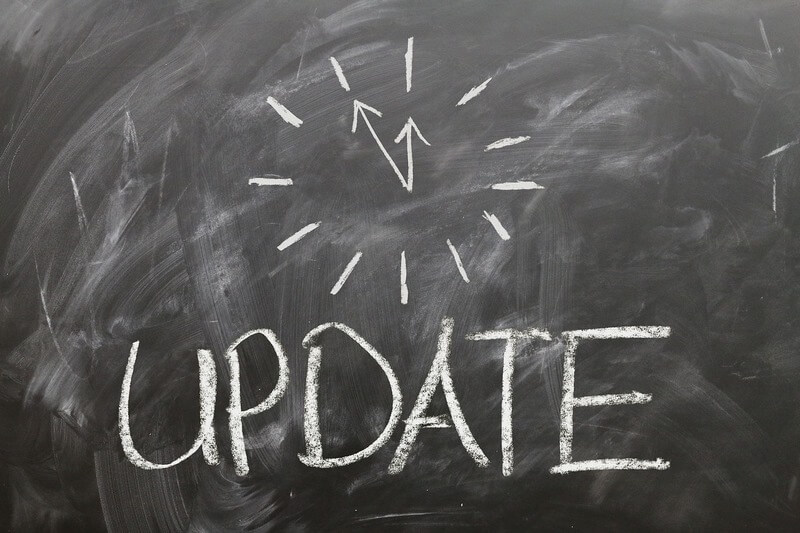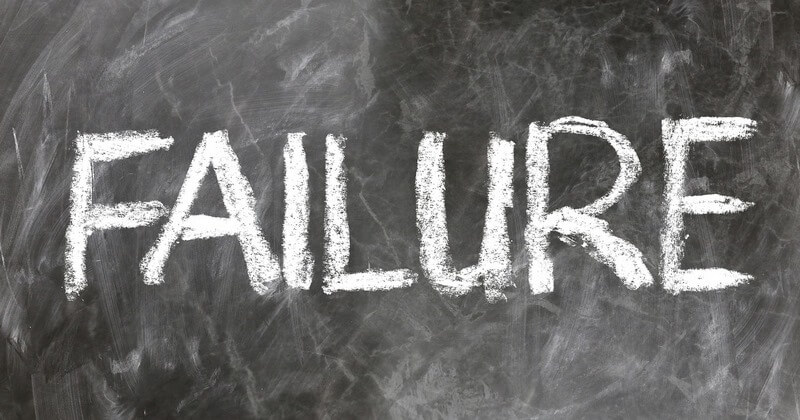How to Manage Your Company’s Reputation After a Crisis Event
Reputation management is critical after a crisis. The tragic second crash of a Boeing 737 Max flown by Ethiopian Airlines on March 13th resulted in the deaths of all 157 people on board. You may have also heard that a Southwest Airlines jet made an emergency landing today. Luckily no passengers were on board, but the pilots quickly turned the plane around and landed after experiencing engine problems.
Typically considered one of the safest forms of travel, when a commercial jet has a fatal crash it sends shock waves across the globe. Adding to the sad event is that it was the second crash of this model plane in the space of six months. Now, I know I don’t need to go into all the details as you have likely been bombarded with them by the media. What I want to discuss is reputation management.

Reputation Management Strategies
From a reputation management standpoint, it is interesting to watch Boeing’s reaction to the requests to ground the 737 Max airplanes. What I noticed was the unprecedented pressure applied to the company to take all aircraft out of service. The company seemed to struggle to keep pace with the world’s response.
Now, I’m not in the airline industry so I can only speak from a crisis management professional’s viewpoint. Since I collaborate with safety and security experts daily, I agree with their argument that passengers safety comes first. However, I understand a company’s reaction to standing by its product until the evidence says otherwise. Having worked on multiple crisis events, I witnessed the thoughtful internal response and investigation process.
I recommend that companies take the following steps to maintain a good reputation and continue to serve their customers in the future.

Display Care for All Involved
Care for the customer and employees safety is top of mind. Companies must also consider the impact on the company. Boeing has likely engaged in an intense reputation management process over the past week. Probably, it started six months ago with the first crash.
Now, not only is the company working to understand what went wrong but also to protect their reputation from additional damage. Care for individuals lives was not as prominent a message in the media as expressions of product safety. Boeing could have communicated this message in a stronger way in the immediate aftermath of the event.

Own Up to Making a Mistake
Be as open as possible with the public, your customers and employees. Share with them all the facts you know, want to learn and next steps. If you are in this situation, something terrible has happened. The best course of action is to own it and dedicate yourself to resolving it. Whether the company caused it or not, it is imperative that you express concern.
It is vital that you use all the resources at your disposal. You will never make the wrong right, but you can lessen the impact on your company’s reputation over time. To do this, you must get out in front of the problem as quickly as possible. Also, your company must collaborate with all the entities involved to understand the cause and address it.
I am not saying that your CEO or leadership needs to take any blame if the cause is unknown. However, your company needs to own the problem and work towards a solution. Taking a leadership position is what matters most if you want to remain viable and retain the customer’s trust.
In the court of public opinion, Boeing’s detractors say they were slow to act. The public thinks they were hesitant to admit there was a safety problem. Even if the long-term damage is not lasting to the company, Boeing has an image problem. Opposing viewpoints in the media overshadowed its reasons for not grounding the airplanes. Boeing is publicly in the forefront of understanding their responsibility.

Be Real
Now, I am not in the aviation industry, but I can understand the reason for this. Even with the first air crash and scheduled software fixes, I know Boeing is cautious.The company does not want to admit there are problems with the plane if they don’t have evidence. Boeing should be innocent until proven guilty. So, Boeing was understandably standing by its product.
Now, what I wish they had done is to stress this point publicly along with showing care and concern for the life of their passengers and crew. I saw Boeing display more emphasis on product safety versus concern for life safety in the news. I am not on Boeing’s crisis team or legal staff so there may have been reasons not to over-express this sentiment. In my opinion, it would have been good for them to communicate a consistent message that linked the safety of passengers with belief in their product. I just saw a statement released by the CEO today articulating this.

Be Transparent
It is important to be genuine in your expression of concern and show care for all involved. Today’s media-savvy audiences are bombarded with ads and marketing their whole lives. They can spot when they are being lied to or tricked. It doesn’t mean they won’t go along with a marketing pitch if they find it entertaining but post-event is not the time to use standard techniques. My advice is not to try it. You want to share the facts you know and be clear about what you don’t.
It is okay not to have all the answers, but you want to let people know what you are doing to get the answers. Last, you need to follow up and share them, or you need to explain why it was not possible. If you can’t get specific information or answers, then you need to tell people why. Good business ethics are essential throughout the process.

Prepare Your Leadership for the Spotlight
A first glance, it might seem to run counter to the last section, but I am not saying to do anything underhanded here. What I am advocating is that you let your knowledgeable, experienced communication personnel lead the process. Communications personnel support leaders through understanding how to react in this type of situation. I also recommend you train management ahead of a crisis or provide just-in-time tutoring.
For managers who have never been out in front of a crisis, being in the spotlight with emergency management, government or law enforcement is not an easy task. This situation is not business as usual. When a crisis happens, emotions run high. Everyone has an opinion of what they think of your company, the case and how to address it.
Your management needs to embrace that they cannot hide behind company slogans, scripted press releases or media relations blitzes by your public relations department. All those actions are necessary and should be going on in conjunction with your leadership’s effort to personally and professionally engage with the public on the issue. It needs to be a priority until the crisis resolves.
Your PR department will be in full swing doing what they do best, but to maintain your reputation, people will want to hear from senior management. The manager does not need to be the CEO or president, but it must be someone who the public believes has the authority to speak on behalf of the company. It should be someone who will engage people for the duration of the post-incident response.

How Your Managers Act Makes an Impact
We all remember instances of leaders who did a less than stellar job when interacting with the media. The leader you choose must be a caring individual who is calm under pressure. To be effective, they need to be genuine and invested in the situation. Your manager is the face of the company throughout the crisis.
Management should be willing to accept blame if it is warranted. What managers should not do is point fingers and assign blame. You want your company to seen as an excellent global community partner who is working towards a solution. As much as possible, your point person should exude an honest and frank attitude in front of the public and with employees. Showing emotion mixed with strong leadership is essential. Achieving this balance is challenging. It is helpful for management to be guided by their communication and crisis management professionals on the do’s and don’ts during this type of situation.
The intensity of being in the media spotlight is extreme. They need guidance and help to understand that they need to react differently than they would during a regular business campaign. Responding to a crisis incident and managing the impact of any reputation damage to the company takes a concerted and on-going effort. It may extend far beyond when the cameras and media go away.

Commit to Making a Change
I can’t stress enough that it starts and ends with a commitment to making real, lasting change. The public, your customers and employees, won’t forget how you handled the crisis. If the response goes poorly, it could be difficult to recover and may even be disastrous to your success in the marketplace. Mis-steps happen. Mistakes get fixed with sincere effort, by developing a plan of action and sticking to it. It may sound simplistic, but this only occurs with on-going effort and a willingness to make a change.
I’ve observed organizations, who deal with the crisis and then forget about it once business returns to normal. It is as if the company ignores that reputation management takes long-term effort. What they miss is that things never go back completely the way they were before.
Companies who miss the opportunity to understand the root cause of the crisis loses the chance to make improvements to keep from repeating past mistakes. The most effective way to do this is to close out the final phase of a disaster by holding a debriefing. Usually called an after-action process, this means holding one or more listening sessions that include the people involved. The goal is to learn both what went wrong and right with the crisis response. Then, after the feedback is collected any gaps in processes that led to the crisis are fixed.

Be a Good Citizen in Your Community
People have the knack of both forgetting easily and being stubborn about forgetting things. The things that people hold onto longest are the incidents that are the most shocking, widespread or hit closest to home (think impacts to co-workers, community, friends or family). If you want to remain viable in your market, you need to be a good community partner. You also need to visibly address the issue(s) that caused the incident in the first place. During this time, your company benefits from an increased presence in the areas you do business while supporting on-going recovery efforts where the crisis took place.

Get to the Heart of the Matter
Leverage all available resources internally and externally to understand what caused the incident. The longer the investigation takes, the less likely you will retain the goodwill of the public, your customer and your employees. In today’s 365-day, 24/7 news cycle it is essential that you do whatever you can to quickly understand what happened.
Internally, use all available resources to get a clear picture of the problem. Use your essential personnel to their fullest extent, and for however long they are needed. It can be challenging to keep people focused on the matter at hand. People working on the crisis response will likely be distracted by others who want to know what is going on. It is best to have a clear communication channel so that your personnel does not get diverted.
Delays happen and often are inevitable. Everyone wants to know what happened and how not to have it happen again. It is likely that answers will not come as quickly as you are anyone else wants. Be patient but keep pushing forward.

Keep People Upated
Keep people updated using the right communication channels and at regular intervals. Determining what the proper channels are is the job of your communications team, and they can help you decide what the best course of action is. You should establish a regular schedule of updates. If this is not possible, be clear on when the next distribution will take place.
To be effective, efficient and get results quickly, you must maintain committed to getting clear outcomes. Keeping this level of focus on the post-event response, instead of on everyday business can be challenging. The sooner you get answers, the sooner you can resume regular business operations. Good reputation management means good crisis management when responding to an incident.

Understanding the Failure
In rare instances, the cause of the incident may remain a mystery. Typically, we learn what caused the problem. Reputable organizations must share information widely and frequently. There are so many communication channels available to people today and the world so fast-paced that you should leverage all avenues to communicate.
I was glad to see that once Boeing had the results from the crash investigation that they did ground all 737 Max aircraft. The fact that they collaborated with other investigators at the crash site and are sharing a plan for fixing it should go a long way to regaining the public’s trust. These steps are signs of good reputation management. Of course, they will have to do many of the other things I mentioned in this blog as well.

Work to Establish Trust
Post-incident, Boeing has a long road to establishing confidence in the aircraft. They should test and re-test the plane and its associated software. The public should be made aware of safety overrides or controls they install to ensure that this type of crash event does not happen again. Of course, there are no guarantees, but Boeing will need to work hard to let the public know the aircraft is safe to fly.
For such a widespread, global event Boeing likely has a PR firm that specializes in crisis communication. Typically, internal staff is well versed in what their next steps need to be. Responding to this type of crisis is not the company’s first rodeo, sadly.
A marketing campaign that re-energizes the public and rallies them around the product would be an excellent next step. An ad showing the CEO and management, traveling with their families would go a long way. It would be hard for the public to doubt the jet’s safety if they are willing to risk themselves and their loved ones. Campaigns that show ordinary people, not actors, and staff flying the planes would also help.

Don't Forget What You Do Right
Although it was a different situation, I remember the steely resolve the United and American airlines staff after 9/11. Even with all that they endured, most returned to their jobs as soon as they were cleared to fly. These are the people most familiar with the risks and for them to maintain their commitment to their airlines went a long way to encouraging much of the public to return to the sky.
You can do similar things with your company’s product or service offerings. Immediately after the event and throughout the recovery phases are crucial times to show the goodwill and conviction of those around you. It is helpful to showcase those who continue to embrace your products and services. Of course, it needs to be real. If done well, nothing else will shine through more and help you to restore any broken trust.

Ditch Bad Product or Services
In conclusion, I’ll end by saying that this next part can be the hardest advice for management. Thousand and even millions of dollars get invested in the launch of a product or service, and it can be hard to let go. Sometimes, we must admit we failed, learn from it and move on.
In this case, the software in the planes can be fixed. However, it will take considerable effort by Boeing to get past this incident. If you find your company in this situation, it is essential that you follow a reputation management strategy like the one I outlined. If you don’t, your customers and the public will lose confidence in your company.

Things Will Get Better
I’ll be watching with interest to see what Boeing does over the next few weeks and rest of the year. Reputation management is so crucial to a company’s success that its importance can’t be understated. At its core, reputation management starts long before a crisis happens. A large part of your ability to recover comes from the goodwill and positive reputation that you build with customers every day.
Many companies, especially ones who let customer service credibility fall second to new customer volume will struggle when a crisis hits. In my experience, companies that demonstrate their care for the customer fare better when a disaster happens.Things get better if you work for it and follow sound strategies.
I am interested in hearing what you think of this blog. I would like to know any additional ideas you have about reputation management and Boeing’s 737 Max incident. Please leave your comments below and let me know what additional topics you want to hear about.
